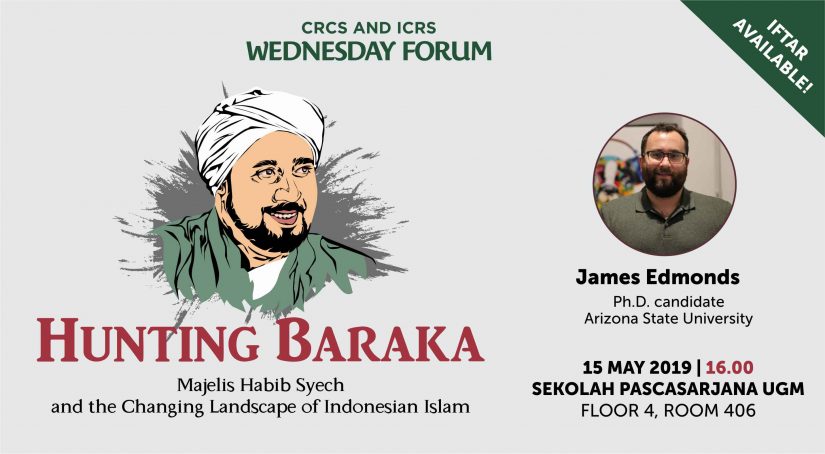
In a different city almost every night, Habib Syech bin Abdul Qadir Assegaf’s performances of salawat (devotional songs to Prophet Muhammad) attract millions of people across the islands of Indonesia. At first glance, these transformations of Islamic piety bring a diverse array of political, religious, and social actors together, indicating new forms of community that extend beyond national and religious boundaries. Through my year of ethnographic fieldwork, I came to understand baraka—often translated as blessings—as the prime mover of these events. The life and concept of baraka indicate ways in which the ineffable, mysterious, and invisible are embedded and inextricable from the material. They create a (re)enchantment of contemporary life challenging assumptions about the nature of Indonesian Islamic life.
James Edmonds is a Ph.D. Candidate at Arizona State University in the Anthropology of Religion track of the Religious Studies Department. His dissertation takes the performances of Habib Syech bin Abdul Qadir Assegaf as spaces in which reconfigurations of piety, identity, and strategies for living Islamically are indexed to baraka. He is also on the editorial board of #AsiaNow and Inside Indonesia.
Look at the full poster of this event here.

